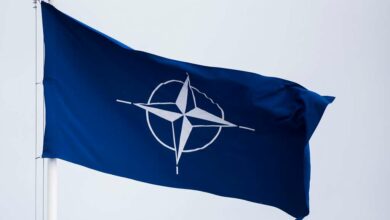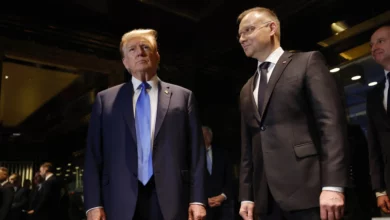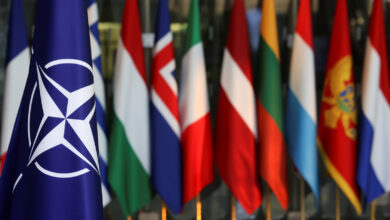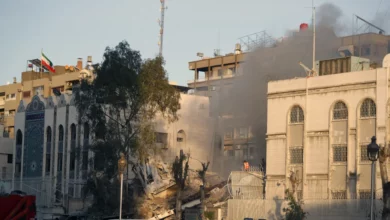Arab League chief Nabil al-Araby flies to Damascus on Wednesday in a last-ditch effort to resolve Syria's political crisis amid mounting criticism of the Arab governments for failing to end a bloody government crackdown on protesters demanding democratic reforms in Syria.
Last week the League's Council asked Araby to convey to Assad an Arab plan to resolving the country's six-month old crisis.
Araby told reporters Tuesday that his discussions with President Bashar al-Assad and Foreign Minister Walid al-Moallam will focus on diplomatic efforts to end the turmoil in Syria.
"The outcome [of the discussions] will determine if that will be Syria's last chance or not," he said. He did not elaborate further or divulge details of the Arab plan.
Araby ruled out a meeting with Syria's opposition groups during his short trip to Damascus.
After an emergency meeting last week in Cairo, Arab foreign ministers called for an end to the bloodshed in Syria and said they were urgently dispatching Araby to Damascus in a bid to resolve the country's troubles.
In a statement the ministers also urged the Syrian government to respond to protesters' demands for "political, economic and social reforms."
Syria rejected the statement and delayed response to the proposal of dispatching Araby.
Araby said he will report back to the Arab ministers. The ministers said they will meet again to try to forge an Arab strategy on how to deal with the Syria crisis.
The Cairo-based organization was instrumental in passing a UN resolution in March calling for the imposition of a no-fly zone over Libya, allowing NATO to carry out strikes against the regime of Muammar Qadhafi, which now appear to have toppled his government.
Arab support could help in efforts to isolate the Assad's regime and give political support to Syrian protesters and the opposition movements.
But Arabs have been divided over Syria with many countries fear increasing uncertainty over its future. Others fear that foreign intervention could make a bad situation even worse and spark further violence.
Protests across Syria began in March calling for more freedoms, political reforms and the ouster of Assad. More than 2200 people were killed since the protests began.




